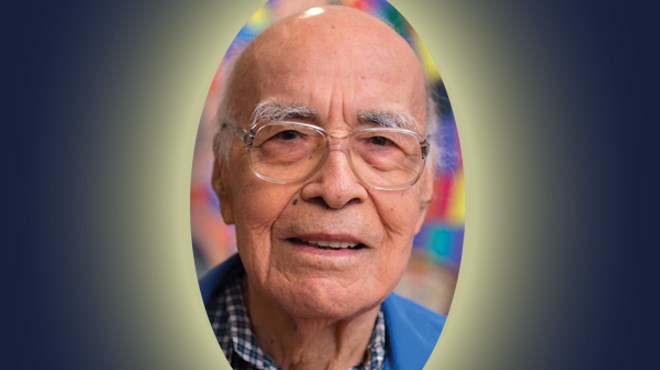The man who made Wahnapitae First Nation what it is today passed away Jan. 11 at the age of 91.
Norman Recollet, first customary chief of the First Nation located near Capreol, a position he held for 28 years, was born in 1927 on the Wiikwemkoong Unceded Territory on Manitoulin Island.
He returned to his people's traditional territory of the Wahnapitae First Nation in 1964, establishing Post Creek Campground with his wife Muriel.
Although the community now numbers a little over 100, with a band list of 550, Recollet and family were the sole occupants of Wahnapitae First Nation for a quarter century, ensuring the preservation of its reserve status.
“Norman was so authentic in his truth that it gestured you to be authentic in your pursuit of knowledge, truth and to uphold your individual integrity in the collective duty to the preservation of the Anishnaabe way to being and living,” said an obituary published on social media.
“His contributions were immeasurable, his reputation immense, his humility legendary.”
Ted Roque, the community's former chief and the former owner of Rocky's Restaurant and Marina, said records show there was a small settlement in what's now the Wahnapitae First Nation in 1820.
However, after the signing of the Robinson Huron Treaty in the mid-1800s, and as valuable mineral deposits were discovered in the Sudbury area, First Nations people who lived here were encouraged by the government to move to Manitoulin Island.
They still used the Wahnapitae territory for fishing and hunting, but nobody was really living there.
“What was going to happen was the government was going to take the reserve status away,” and by Recollet moving there, he preserved the territory's reserve status, said Roque, a Killarney native who's lived in Wahnapitae for 20 years.
Recollet was instrumental in the community's land claim, his obituary said.
In 1979, he even travelled to England alongside other First Nations leaders to meet the Queen to ensure the rights of First Nations people were entrenched in the Canadian Constitution.
In his early life, he was a guide in the Killarney area starting at the age of 14, and later on, he worked as a lumberjack, served in the U.S. Army and was an iron worker, working on bridges including the Mackinaw Bridge.
The township of Recollet near Wawa, Ont. is named in his honour, as well as the Norman Recollet Health Centre in Wahnapitae First Nation.
“He's going to be missed deeply,” said Roque, who describes Recollet as a great man. “Everybody recognizes what he's done for everyone to keep this community for future generations. It's up to us, basically, to keep it going now.”
Nickel Belt MPP France Gélinas was among those who attended a funeral service for Recollet at the Wahnapitae First Nation Community Centre Jan. 15.
The politician said her husband's parents owned a camp in the area when it was just the Recollet family living on the Wahnapitae First Nation.
Gélinas said her husband used to go hunting in the territory, first asking Recollet's permission, and then borrowing his boat to cross Post Creek. Recollet would take one of the partridges he shot in trade.
“He's the one who kept the flame going” for the community, Gélinas said. “He was an incredible, incredible force.”
Recollet is survived by his grandchildren, Michelle (Tom), John Andrew, Marianne (Ron), Emmanuel (Cynthia), David (Kathleen), Daniel, and many great-grandchildren, as well as many nieces and nephews.
He is predeceased by his wife Muriel, who died in 2012, and their children, Carol Edwards and Eddy.
